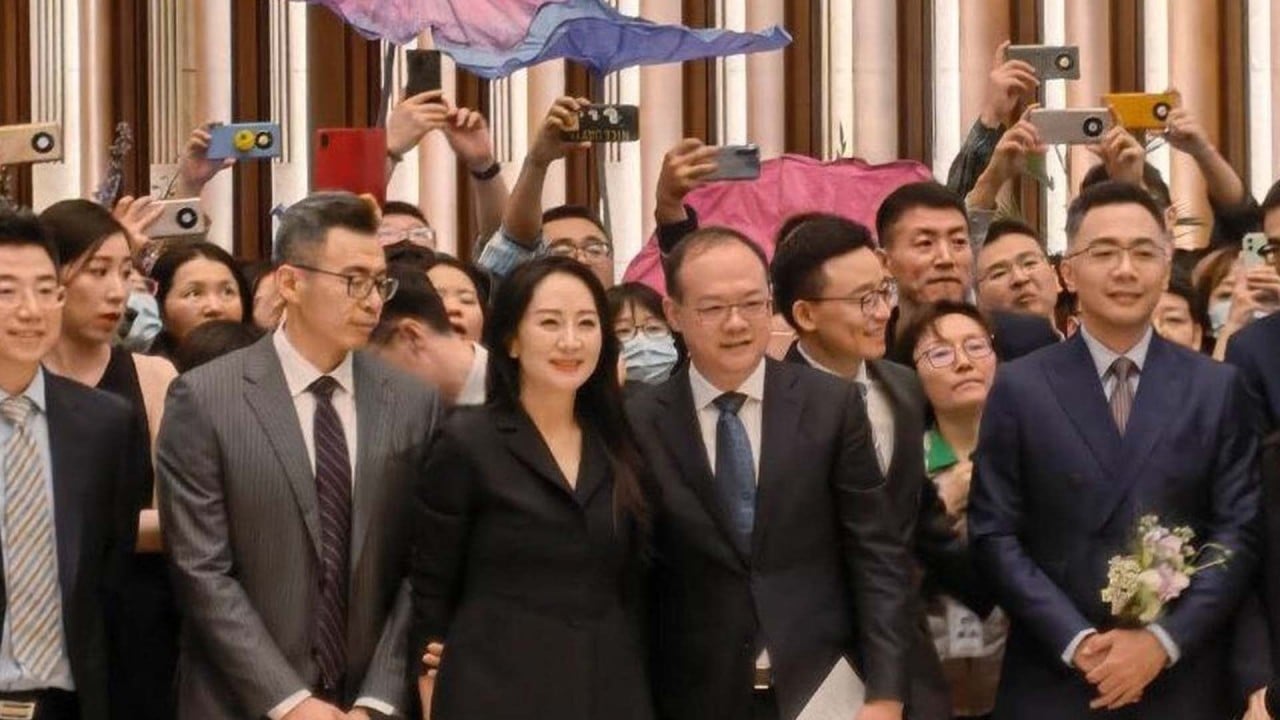
Huawei revenue drops 32 per cent in first nine months as US sanctions cripple its once lucrative smartphone business
- Huawei is quickly losing relevance in China’s smartphone market, ranking No 6 in the third quarter and shipping around 5 million units during this period
- Its net profit margin was 10.2 per cent for the three quarters, up from 8 per cent in the same period last year
Huawei Technologies Co, the Chinese telecommunications and smartphone giant, reported a 32 per cent slump in sales for the first nine months of 2021, deepening a 29.4 per cent decline in the first half, as the company’s handset business was crippled by US sanctions.
Huawei, which is private but releases some financial data periodically, said it generated revenue of 455.8 billion yuan (US$71.2 billion) in the first nine months of 2021, almost a third less than the 671.3 billion yuan it posted in the same period last year. Its net profit margin was 10.2 per cent for the three quarters, up from 8 per cent in the same period last year, and 9.8 per cent for the first half of 2021.
Guo Ping, Huawei’s rotating chairman, said the company’s performance was in line with expectations.
“Through our ongoing commitment to innovation, R&D, and talent acquisition, and rigorous attention to operating efficiency, we are confident we will continue to create practical value for our customers and the communities in which we work,” Guo said in a statement.
The latest business results for Huawei, the world’s largest telecoms equipment maker and formerly China’s biggest smartphone vendor, came as the company struggles to overcome the impact of US sanctions, which cut off its access to advanced chips.
What export permits to Huawei suppliers mean for US-China decoupling
Huawei is quickly losing relevance in China’s smartphone market. In November last year, Huawei sold its budget smartphone business Honor to a consortium of more than 30 dealers and agents of the brand. That allowed Honor to break free of the US trade restrictions imposed on its former parent company.
Honor, which recently regained access to US technologies including Google Mobile Services, emerged as the third-biggest smartphone vendor in China in the third quarter, according to a Canalys report on Friday. Entering the top-three ranking for the first time, Honor shipped 14.2 million handsets in the third quarter, up 25 per cent from the same period last year.
In comparison, Huawei ranked sixth in the world's biggest smartphone market in the third quarter, shipping around 5 million units during the period.
The Shenzhen-based company, however, has said it will not give up its smartphone operation.
Huawei’s chief financial officer Meng Wanzhou, daughter of founder and chief executive Ren Zhengfei, returned to China last month after almost three-years of house arrest in Vancouver, and resumed work at Huawei’s Shenzhen headquarters this week to a hero’s welcome.

01:31
Hero’s welcome for Meng Wanzhou at Huawei offices in China after extradition battle and quarantine
Meng’s return came after she reached a deal with prosecutors in New York that effectively resolved a US fraud case that had kept her in legal limbo since late 2018 as she fought extradition to the United States. Under a deferred prosecution agreement, Meng admitted that she had misled global financial institutions over Huawei’s business ties with Iran, which was under US sanctions.

